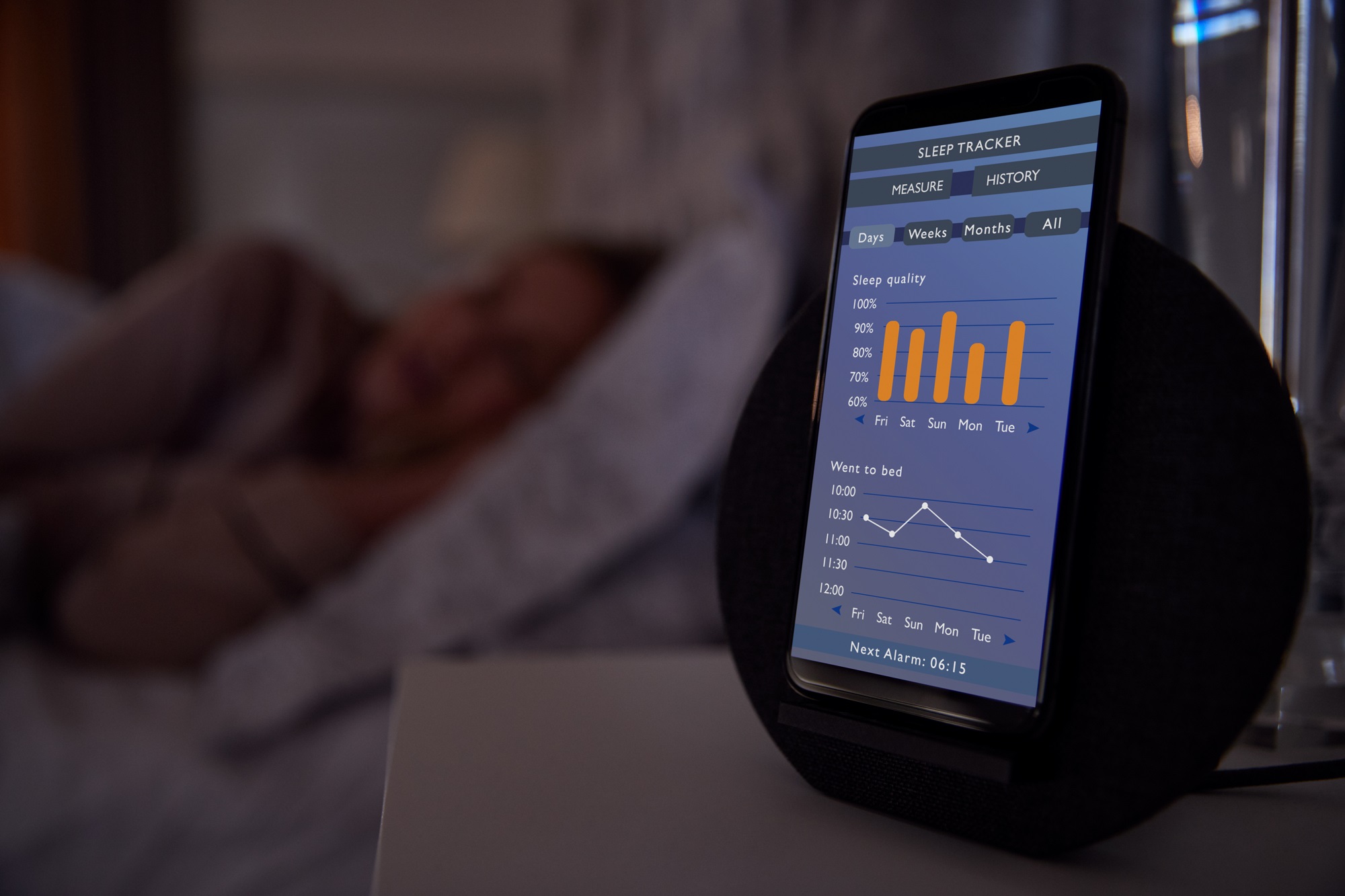https://www.youtube.com/watch?v=YUve_y4Q78M
In a perfect world, we’ll all have the luxury of calling it a night early. We will go to sleep before 10 pm and wake up fully rested the next morning. But, with a busy work schedule, children, and chores, it becomes nearly impossible.
In fact, around 35% of American adults aren’t sleeping for 7 hours straight, statistics show. 39% of adults between 45 and 54 years of age and 38.3% between 35 and 44 years old don’t get enough sleep, stated the latest statistical analysis published in Tech Times.
When we don’t get enough sleep, we are more vulnerable to serious health complications, even chronic health conditions.
So, the question is, how can you make sure you get enough rest? What is the best time for sleeping? Getting the proper amount of sleep matters, and here we will show you exactly why. Let’s take a closer look at the proper time you need to go to sleep and the reasons why it matters.
What Is the Best Time for Sleeping?
Our human body has biological tendencies. That means it needs to be fully rested to be productive for the rest of the day.
Immediately after sundown, the body may feel sleepier. This is natural. The best time for sleeping is getting into bed early on and sleeping for at least 7 hours until the next morning. This is also known as a healthy sleeping pattern.
According to the National Sleep Foundation, from 8 pm to 12 o’clock at night is the ideal sleeping time for adults. When you choose to sleep should be tailored to the time you are waking up in the morning.

Why Does It Matter?
Not a single living being can survive without getting any sleep. The same thing applies to humans. Lack of sleep can have major consequences, not just for your emotional health, but for your physical well-being as well.
Our body needs sleep for two major reasons:
- It aids the natural rejuvenation process by keeping the immune system in check, balancing the hormones, and restoring the proper organ functions.
- It helps retain your memory of all the things you’ve learned during the day so that you get to use them the next day.
Let’s think back for a moment. How do you feel after sleeping just 5 hours a day? Anyone would feel extremely grumpy and disoriented. But, when you regularly sleep so little, you reduce your body's energy and ability to function properly.
 Therefore, you are making yourself more vulnerable to heart problems, obesity, diabetes, and many other serious health complications stated by the NHS.
When you think on a psychological level, the first thing that comes to mind due to lack of sleep is fatigue. Yes, we feel exhausted and extremely distorted after waking up. The reason for that is relatively simple. Sleep deprivation reduces our mental functioning, makes us less aware of our surroundings, and hinders our ability to pay attention to anything around us.
So, if you want your body to be functioning properly, then you have to give it enough time to rest and rejuvenate.
Therefore, you are making yourself more vulnerable to heart problems, obesity, diabetes, and many other serious health complications stated by the NHS.
When you think on a psychological level, the first thing that comes to mind due to lack of sleep is fatigue. Yes, we feel exhausted and extremely distorted after waking up. The reason for that is relatively simple. Sleep deprivation reduces our mental functioning, makes us less aware of our surroundings, and hinders our ability to pay attention to anything around us.
So, if you want your body to be functioning properly, then you have to give it enough time to rest and rejuvenate.
Why is it Important to Go to Bed on Time?
1. What are the benefits of sleep?
With time, people are beginning to understand the importance of sleep concerning overall health. It’s important to have a good night’s sleep. As a matter, it is as important as healthy eating and exercising. Some of the top benefits of sleep are,
Strokes and heart attack generally take place during the morning. This can be how sleep interacts with the blood vessels of your body. If you don’t get proper sleep, it will negatively impact the cholesterol and blood pressure of your body. This, in turn, can increase the risk of stroke or heart disease.
Not getting enough sleep is associated with weight gain—people with shorter sleep duration weight more than people who sleep better. As a matter of fact, poor sleep is one of the primary causes of obesity. So, if you are looking to lose weight, getting quality sleep is absolutely important.
You will be surprised to know that people working late shift have a greater risk of developing colon and breast cancer. Light exposure can reduce the melatonin level in the body. This is a hormone responsible for regulating your sleeping and waking cycle. It can also protect against cancer as it can suppress tumour growth.
-
Improves Productivity and Concentration
Sleeping can improve concentration, cognition, performance, and productivity. All these get affected when you get poor sleep. Being active and cognitive not just feels great but will also increase your chances of performing better in everything that you do.
2. Why is sleep important for the brain?
Sleep might not appear to be much productive. However, it is your brain’s best friend. Starting from your age to your happiness depends on a good sleep at night. Here’s how sleep can be important for your brain and mental health.
If you are worried about your mental well-being, you should go to bed early. Studies have shown that poor sleep for a long time can aggravate depressive symptoms. Getting little or no rest will deepen your feelings of worry and stress. In case you too anxious to drift off, help your mind rest by writing journal or meditating.
The best way to relax your ageing brain is to sleep. When you get the right amount of sleep, it will help the brain stay sharper. Hence, you will be able to recall things better. As your mind is well-rested, it gets easier for you to remember various facts and tasks.
-
Helps with Decision Making
If you get good sleep, you can make better decisions. Studies have shown that a series of unconscious thought that is just like sleep can help with better decision making. Moreover, no one would want to make life-changing decisions with a tired mind.
-
Helps Focus on Different Tasks
When you don’t get enough sleep, it can be difficult to concentrate on anything. However, when you do, you can be alert and sharp all throughout the day. Thus, your to-do list feels much more manageable. With sleep, you can improve your problem-solving and learning skills.
3. Why is it important to get 8 hours of sleep a night?
We know little about sleep. Many think that they will catch up on the lost hours of sleep during the weekend when they get only 4 hours of sleep during the weekdays.
But sleeping for less than 7-8 hours a day and then working all throughout the day is not something that you should brag about. Just as oxygen, water, and food, sleep, too, plays a significant role in life.
Studies have shown that you need 7-8 hours of sleep if you have to function optimally. Sleeping less than this only means that your health is deteriorating.
Sleeping less will have a negative impact on your hormonal levels. This can make you feel hungry all the time, even when your body doesn’t require food. Proper sleep is an important aspect of a healthy lifestyle. It will have a positive impact on your weight control, lungs, and kidneys.
When you are chronically sleep-deprived, it can hamper your immune function, disturb your brain and mood function, and reduce disease resistance. In fact, sleeping too less can also augment the risk of premature death.
Sleep is a natural stress reliever. It can reduce stress and will keep the blood pressure under control. If you don’t sleep well at night, you can feel disoriented, fatigued, and distracted.
In case you are sleeping less than 8 hours in a day, it is time you make some necessary changes in your lifestyle.
4. What can a lack of sleep do to you?
Not getting enough sleep will make you foggy and grumpy. However, it has various other impacts on your body. Let’s take a look at them.
- Sleep plays a significant role in learning and thinking. Sleep deprivation can negatively affect the cognitive process in various ways. It can impair concentration, alertness, and problem-solving skills. Hence, it can be difficult to learn efficiently.
- Chronic sleep loss and sleeping disorder can put you at great risk. There is a risk of heart disease, high blood pressure, diabetes, and stroke. Studies have shown that people who have trouble falling asleep tend to have another serious health condition.
- Sleep-deprived women and men have lower-libidos. This might be due to depleted energy and increased tension.
- Over time, not getting sleep can also contribute to depression. In fact, if someone is already depressed, not getting sleep will aggravate the symptoms of depression.
- People suffering from sleep disorders tend to develop puffy eyes and sallow skin. It can also lead to fine lines, lacklustre skin, and dark circles. Thus, it ages your skin much easier.
- Lack of sleep tends to impair your judgment. As you don’t sleep well, you are unable to interpret an event. Thus, as you are unable to assess the situation in the right way, you fail to act on them wisely.
Final Thoughts
Now that you know what the best time for sleeping is and why it matters, you will give yourself more time to rest and sleep. Overall, it’s super important that you get early to bed and sleep for at least 7h. The more you sleep, the better your physical and emotional health will be. As you can see, getting a shut-eye can make all the difference between a perfect and a disastrous day.
 Therefore, you are making yourself more vulnerable to heart problems, obesity, diabetes, and many other serious health complications stated by the NHS.
When you think on a psychological level, the first thing that comes to mind due to lack of sleep is fatigue. Yes, we feel exhausted and extremely distorted after waking up. The reason for that is relatively simple. Sleep deprivation reduces our mental functioning, makes us less aware of our surroundings, and hinders our ability to pay attention to anything around us.
So, if you want your body to be functioning properly, then you have to give it enough time to rest and rejuvenate.
Therefore, you are making yourself more vulnerable to heart problems, obesity, diabetes, and many other serious health complications stated by the NHS.
When you think on a psychological level, the first thing that comes to mind due to lack of sleep is fatigue. Yes, we feel exhausted and extremely distorted after waking up. The reason for that is relatively simple. Sleep deprivation reduces our mental functioning, makes us less aware of our surroundings, and hinders our ability to pay attention to anything around us.
So, if you want your body to be functioning properly, then you have to give it enough time to rest and rejuvenate.
Leave a Comment